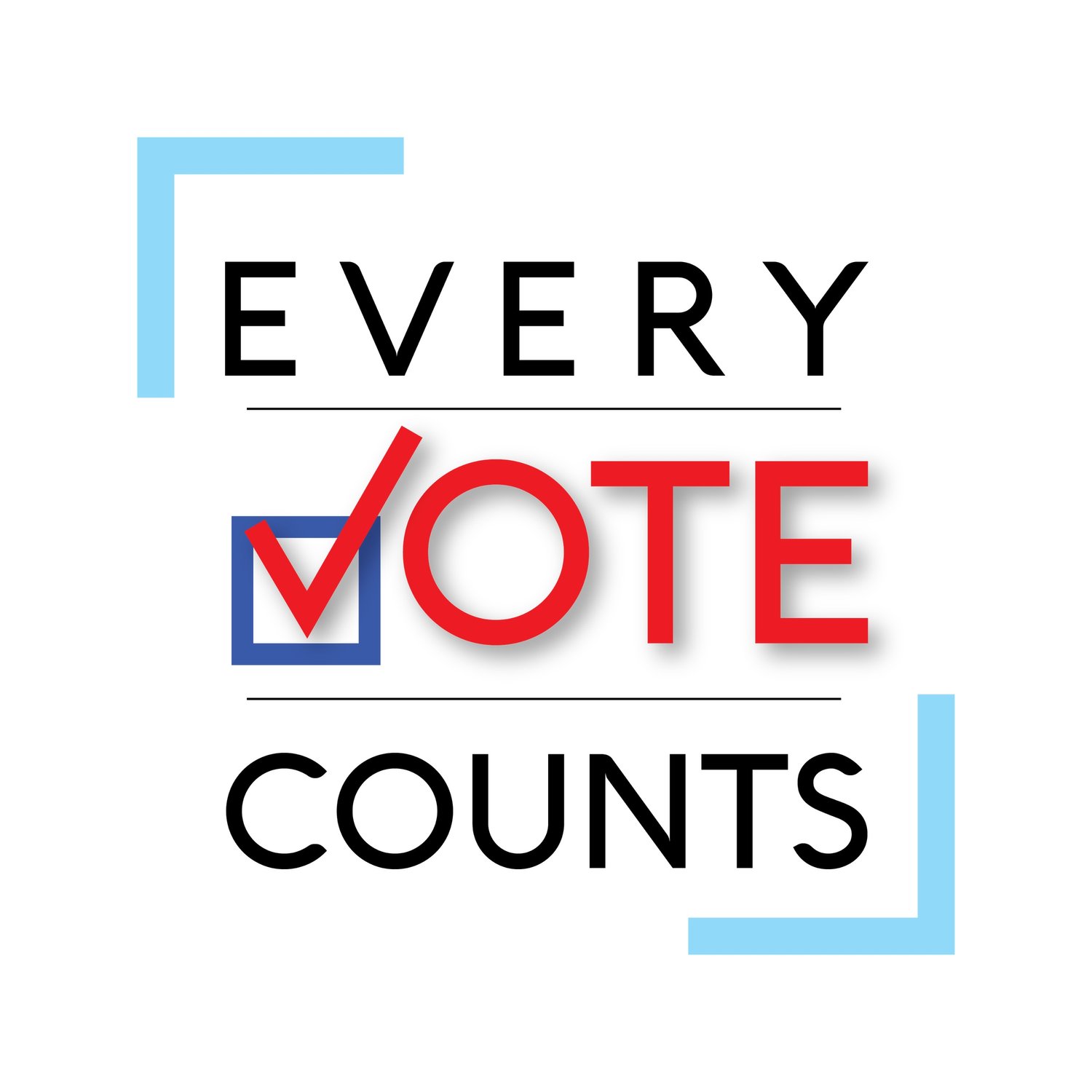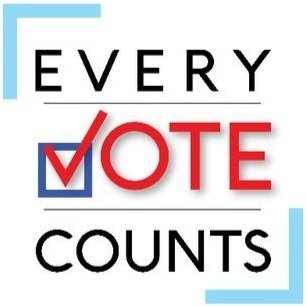
We’re a student-led, nonpartisan organization dedicated to increasing voter turnout and expanding voter access nationwide.
As Featured In
Key Projects
EVC Grant Program
Every Vote Counts National is excited to announce the EVC Grant Program, a new funding opportunity for chapters and campus partners. This program supports student-led initiatives related to civic engagement.
Campus Ambassador Program
Interested in civic engagement, voting, or making real change on your campus? This paid program empowers student leaders to champion civic engagement on their campuses and ensure that voting isn’t just a one-time effort, but part of everyday student life. If you’re a student leader, whether in student government, athletics, cultural organizations, residence life, or simply passionate about creating change, this is for you. No prior civic engagement experience needed.
Time Off to Vote
Millions of eligible voters don't vote because of a conflicting work schedule—not everyone can head to the polls on a Tuesday. As Americans, we shouldn't have to choose between earning a paycheck and casting a vote. That's why we started Time Off to Vote; we believe that your most basic democratic right should never be constrained by your job. It's as simple as that.
Our Mission
We believe that all political questions—domestic, foreign, economic, social, environmental—depend on a functioning and fair voting system. When that system is flawed, the voice of the people is not fully heard.
Building on the hard-won voting rights victories of the past, Every Vote Counts seeks to strengthen our democracy for future generations by making sure that every American who is eligible to vote can easily do so—and that every vote counts.
Our Three Pillars
-
Working to increase voter registration and turnout on college campuses.
Low turnout has long been an issue on college campuses, with turnout amongst students regularly falling below national averages. According to Tisch College at Tufts University's NSLVE study, less than 50% of students voted in the 2016 presidential election. During the 2014 midterm elections, the numbers were even worse, as less than 13% of 18-21 year old college students voted.
The 2018 midterms and the 2020 election bucked that trend, as student and young voter turnout surged to record highs, and EVC is working to maintain that momentum. In order to overcome the challenges and reduce the barriers that students face in getting to the ballot box, we are supporting a variety of campus initiatives designed to increase voter turnout.
From absentee ballot drives to on-campus "Pledge to Vote" competitions, our chapters and partners are working hard to get students excited about making their voices heard and to get their institutions to embrace the role they can play in turning out the student vote.
-
Researching, crafting, and advocating for policies which make electoral systems more accessible and effective.
Check out our spotlight on COVID-19 related reforms, our research on racial justice and voting reform, or learn more about the voting reform efforts that have been making headlines.
At its birth, “the United States was not a democratic nation—far from it,” Harvard University historian Alexander Keyssar has written, noting that only a small fraction of the three million populace of the thirteen colonies—white, male property owners—could participate in the first elections. African Americans, Native Americans, and women, as well as Catholics and Jews, were among those excluded.
Since then, victories to expand suffrage and protect the right to vote have been hard-won. It took the Civil War, constitutional amendments, landmark legislation like the 1965 Voting Rights Act, court battles, political activism, and federal enforcement to rid the our voting laws of exclusions and restrictions, and secure voting rights for all.
That struggle is far from over.
The overturning by the Supreme Court of Section 4 of the Voting Rights Act, a wave of voter suppression laws, egregious partisan gerrymandering, and an increasingly indifferent electorate pose significant challenges to voting rights in the 21st century. As Ari Berman wrote in Give Us the Ballot: The Modern Struggle for Voting Rights in America, voting rights should be the most settled right in American democracy but in fact remain “the most contested.”
Today, everyone has the right to vote because of the sacrifices and efforts of those who fought those battles. As the inheritors of those accomplishments, we owe them an obligation.
-
Educating individuals approaching the voting-age about America's institutions, civic duties, and most importantly, civic opportunities.
To increase voter turnout and ensure that all voters are knowledgeable and well-informed about how to vote and their civic responsibility, Every Vote Counts backs broad-based education programs for all new voters.
To be effective, these must be available on social media and other platforms and be designed to account for age, literacy (including computer literacy), education, language ability, and income level.
Existing programs that could serve as models include MassVOTE, which helps civic organizations educate voters with an emphasis on historically disenfranchised communities, and youth-focused initiatives such as RockTheVote and the California Department of Education's (CDE) High School Voter Education Weeks.
The CDE's program works directly with schools in San Francisco and Sacramento, providing advocates to speak with 16- and 17-year olds in personal settings— encouraging them to pre-register to vote and take an interest in the American political system.
Get involved with EVC
Take action on our key projects, making a difference with direct impact. If you’re a college student, start a chapter. If you’re a corporation, become a partner or a sponsor. If you’re able, make a donation. Everything makes a difference, and there’s a myriad of things you can do to further the cause.
























